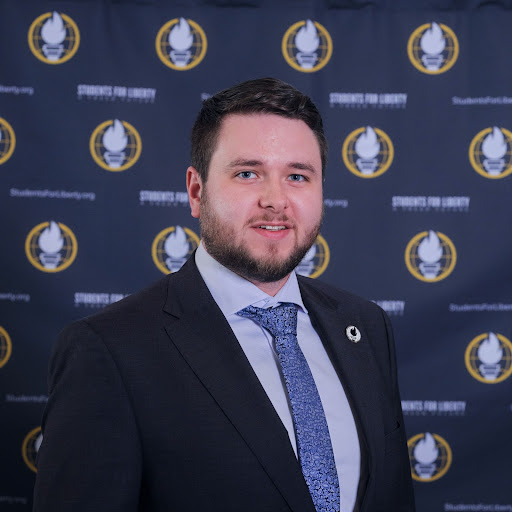When people think of initiatives to combat climate change, they’ll typically think of top-down, state-led approaches. It involves subsidies, bans, and government promises to accomplish lofty goals by specific dates, before falling short of expectations and kicking the can down the road.
Indeed, for the longest time, free-market voices were largely absent from the environmentalist discourse. However, in the past 10 years or so, a significant shift has taken place, challenging the status quo with solutions that rely on innovation over prohibition and promote human progress over economic stagnation.
The Grace Richardson Fund, a private foundation under the visionary leadership of President Rod Richardson, has been a trailblazer in this transformation, actively contributing to the integration of free-market principles into environmental initiatives.
By championing market-oriented approaches, the fund has played a key role in diversifying the strategies used to address climate change, marking a notable departure from the traditional government-centric models.
A key point, overlooked by state-driven initiatives, is that, for any solution to environmental issues to be successful, it must have market appeal to ensure widespread buy-in.
Speaking at the United Nations’ recent COP28 conference, Rod Richardson stressed that:
“There is no such thing as a national climate policy. Because any nation can pursue all the climate policies it wants and it’s not going to make any difference unless you have a framework that encourages other people to join.”
Richardson is critical of the limitations of current climate policy pathways, particularly in the UK, where carbon taxes and other negative reinforcement mechanisms have been ineffective.
His concern is that these policies are causing “carbon leakage” as companies move away to avoid the burdens. Richardson instead advocates for a shift to positive incentives, emphasizing the use of pro-growth tax policies, providing more freedom, and opening up markets to competition.
As such, the goal would be to attract businesses by drawing them in with positive incentives rather than pushing them away with negative ones.
Embracing a distinctive strategy of collaborative policy innovation, the foundation invites grant proposals for policy studies focused on market-oriented approaches to combating the environmental crisis.
The Grace Richardson Fund is actively engaged in pioneering free-market, nonpartisan solutions, aiming to break through the political gridlock that too often hampers progress in critical areas.
Rod Richardson led the establishment of impactful initiatives such as the Clean Capitalist Leadership Council and the Clean Capitalist Coalition.
The Clean Capitalist Leadership Council brings together a diverse group, uniting clean capitalists, conservation conservatives, and environmental-minded donors to offer advice and support.
The Clean Capitalist Coalition, gathering think tanks and scholars, explores novel laissez-faire policy solutions. These solutions target a range of barriers, aiming to accelerate innovation and deployment for clean enterprise.
One standout policy initiative, Clean Tax Cuts, strategically addresses tax barriers by leveraging policy tools to enhance financial leverage, thus expediting clean capital flows.
Additionally, Clean Free Market policy research broadens the scope to include the dismantling of regulatory barriers to markets and trade, aiming to unlock massive global private capital markets by maximizing economic freedoms for clean enterprise.
In the mid-2010s, as more clean technologies, such as solar or wind power, became profitable, Rod Richardson was at the cutting edge of a new approach, exploring how policy could address a global negative externality using the removal of regulatory barriers.
Since then, the Grace Richardson Fund has been instrumental in developing the Climate & Freedom Accord — a proposal for an international, free-market climate agreement, first presented in 2023.
Emphasizing the symbiotic relationship between freedom and addressing environmental challenges, the accord advocates for incorporating free-market principles into climate policy. Acknowledging the positive correlation between free economies and environmental cleanliness, the accord calls for policies that promote innovation and inclusivity.
The proposal outlines various mechanisms, including Inclusive Innovation Acceleration Bonds, Game-Changer Tax Cuts for breakthrough innovations, and Demonopolization Tax Cuts to shift from monopolies to competitive markets.
Moreover, it suggests the aforementioned Clean Tax Cuts for transport and electricity sectors, aligning tax rates with emissions reduction. Collaborative efforts from global free-market thinkers are invited to refine and expand this innovative policy framework. The accord envisions a seismic shift towards freedom, simultaneously addressing climate change and poverty.
As the Grace Richardson Fund continues to lead the charge in policy innovation, it actively seeks proposals that bridge ideological divides, promoting solutions that resonate across the political spectrum and, most importantly, are capable of delivering the durable change needed to address the climate crisis.
The power of markets and innovation in addressing humanity’s challenges will be an important topics of discussion at Students For Liberty’s upcoming LibertyCon International.
Students For Liberty’s flagship annual event, LibertyCon International will be held in Washington, D.C., on February 2-4, 2024. It promises to be the place for engaging with leading experts and connecting with others who share a dedication to advancing pro-liberty ideas and creating a freer future.
Click the button below to sign up for updates and secure your spot at this exciting event. We can’t wait to see you there!
To find out more about free-market environmentalism and how you can help make a difference, be sure to check out the landing page for the Green Liberty campaign by clicking on the button below.
This piece was originally published on the Students For Liberty website.
This piece solely expresses the opinion of the author and not necessarily the organization as a whole. Students For Liberty is committed to facilitating a broad dialogue for liberty, representing a variety of opinions.



